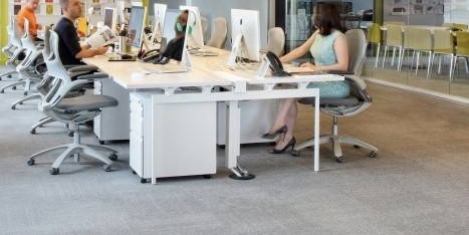March 24, 2017
Review advises employers should devise elder care policies as pension age increases 0

A review of the state pension age (SPA) led by former Confederation of British Industry (CBI) director general John Cridland has recommended that the State Pension age shouldn’t rise to 68 until between 2037 and 2039 and should not increase more than 1 year in any 10 year period. The report has also advised that all employers should have elder care policies in place which set out a basic care offer and that people should be able to access a mid-life career MOT and review which should be facilitated by employers and by the government using online support and through the National Careers Service. Commenting on the report, which will be considered before any decision is made on changes to the State Pension age timetable after 2028, the Centre for Ageing Better has welcomed its recommendations on wider actions to mitigate the impact of bringing the timetable forward for increases to the State Pension Age.







 Accommodation and food services, manufacturing, and transport industries will be hardest hit by limits on movement of EU and non-EU workers following Brexit, a new report has claimed. The latest edition of Mercer’s
Accommodation and food services, manufacturing, and transport industries will be hardest hit by limits on movement of EU and non-EU workers following Brexit, a new report has claimed. The latest edition of Mercer’s 

 Gig economy workers are as likely to be satisfied with their work as workers in traditional employment, according to a major new survey published today by the CIPD which provides the first robust estimate of the size of the gig economy. Currently, 4 percent of UK working adults aged between 18 and 70 are working in the ‘gig economy’, which means approximately 1.3 million people are engaged in ‘gig work’ according to ‘To gig or not to gig: Stories from the modern. The report, which is based on a survey of 400 gig economy workers and more than 2,000 other workers, as well as 15 in-depth interviews with gig economy workers found that nearly two-thirds (63 percent) believe the Government should regulate to guarantee them basic employment rights and benefits such as holiday pay. But the research also found that, contrary to much of the rhetoric, just 14 percent of respondents said they did gig work because they could not find alternative employment.
Gig economy workers are as likely to be satisfied with their work as workers in traditional employment, according to a major new survey published today by the CIPD which provides the first robust estimate of the size of the gig economy. Currently, 4 percent of UK working adults aged between 18 and 70 are working in the ‘gig economy’, which means approximately 1.3 million people are engaged in ‘gig work’ according to ‘To gig or not to gig: Stories from the modern. The report, which is based on a survey of 400 gig economy workers and more than 2,000 other workers, as well as 15 in-depth interviews with gig economy workers found that nearly two-thirds (63 percent) believe the Government should regulate to guarantee them basic employment rights and benefits such as holiday pay. But the research also found that, contrary to much of the rhetoric, just 14 percent of respondents said they did gig work because they could not find alternative employment.



















